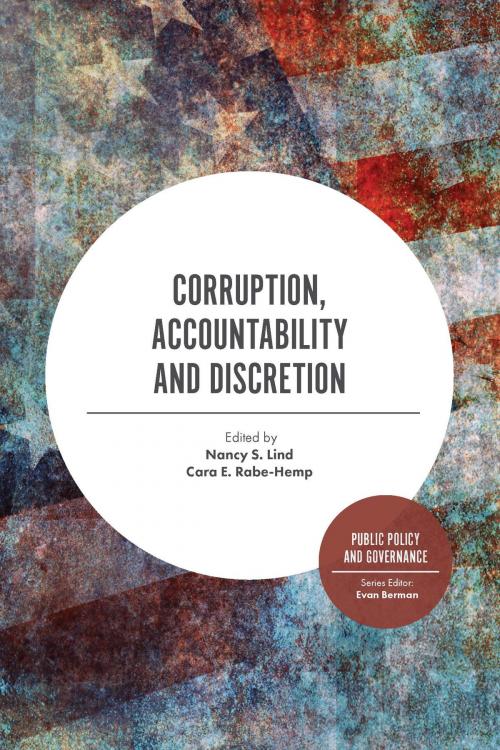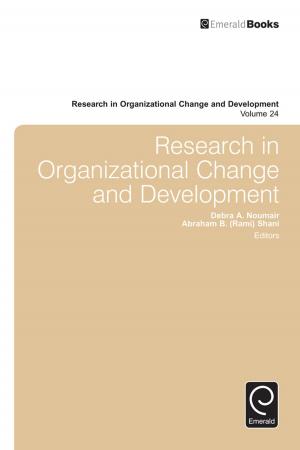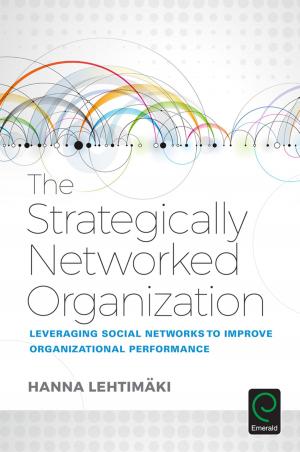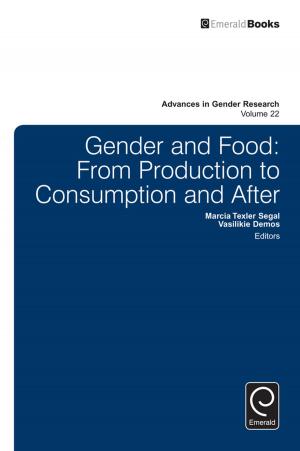Corruption, Accountability and Discretion
Nonfiction, Social & Cultural Studies, Political Science, Politics, Practical Politics, Government| Author: | ISBN: | 9781787435698 | |
| Publisher: | Emerald Publishing Limited | Publication: | October 25, 2017 |
| Imprint: | Emerald Publishing Limited | Language: | English |
| Author: | |
| ISBN: | 9781787435698 |
| Publisher: | Emerald Publishing Limited |
| Publication: | October 25, 2017 |
| Imprint: | Emerald Publishing Limited |
| Language: | English |
The corruption of public officials in the United States and its corrosive impact on public policy, political stability and democratic institutions, earns it a spot among the most critical public crises of the last decade. There have been scandals involving elected officials across the political spectrum from local elected officials up to the White House, involving conflicts of interest, campaign fundraising and political elections. At the heart of many scandals is the discretionary power of public officials to make decisions based on personal interest, often leading to corruption. Understanding the nature and etiology of corruption is important to drafting controls on discretion and rules for accountability. While strict regulation and oversight mechanisms have previously been designed to encourage ethical decision-making and punish violators, it is the media and citizens that have increasingly become modern mechanisms of accountability. Corruption of public governance not only undermines the effectiveness of the political system; it also results in corrupt public policymaking on the most pressing issues facing Americans today.
This timely and insightful book provides the key elements needed to understand the nature and prevalence of corruption in public governance, as well as the devastating public policy consequences. The chapters explore the implications of public governance corruption on political stability, public trust, and policymaking, as well as recommendations for how to establish controls on discretion and strict regulation to increase accountability and corruption control in public governance.
The corruption of public officials in the United States and its corrosive impact on public policy, political stability and democratic institutions, earns it a spot among the most critical public crises of the last decade. There have been scandals involving elected officials across the political spectrum from local elected officials up to the White House, involving conflicts of interest, campaign fundraising and political elections. At the heart of many scandals is the discretionary power of public officials to make decisions based on personal interest, often leading to corruption. Understanding the nature and etiology of corruption is important to drafting controls on discretion and rules for accountability. While strict regulation and oversight mechanisms have previously been designed to encourage ethical decision-making and punish violators, it is the media and citizens that have increasingly become modern mechanisms of accountability. Corruption of public governance not only undermines the effectiveness of the political system; it also results in corrupt public policymaking on the most pressing issues facing Americans today.
This timely and insightful book provides the key elements needed to understand the nature and prevalence of corruption in public governance, as well as the devastating public policy consequences. The chapters explore the implications of public governance corruption on political stability, public trust, and policymaking, as well as recommendations for how to establish controls on discretion and strict regulation to increase accountability and corruption control in public governance.















